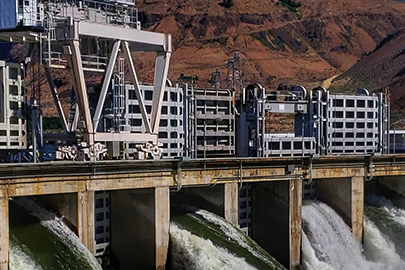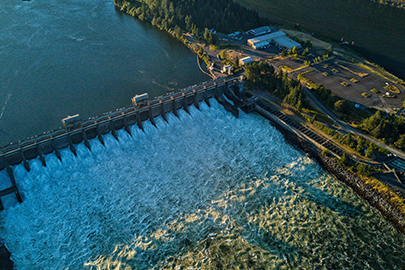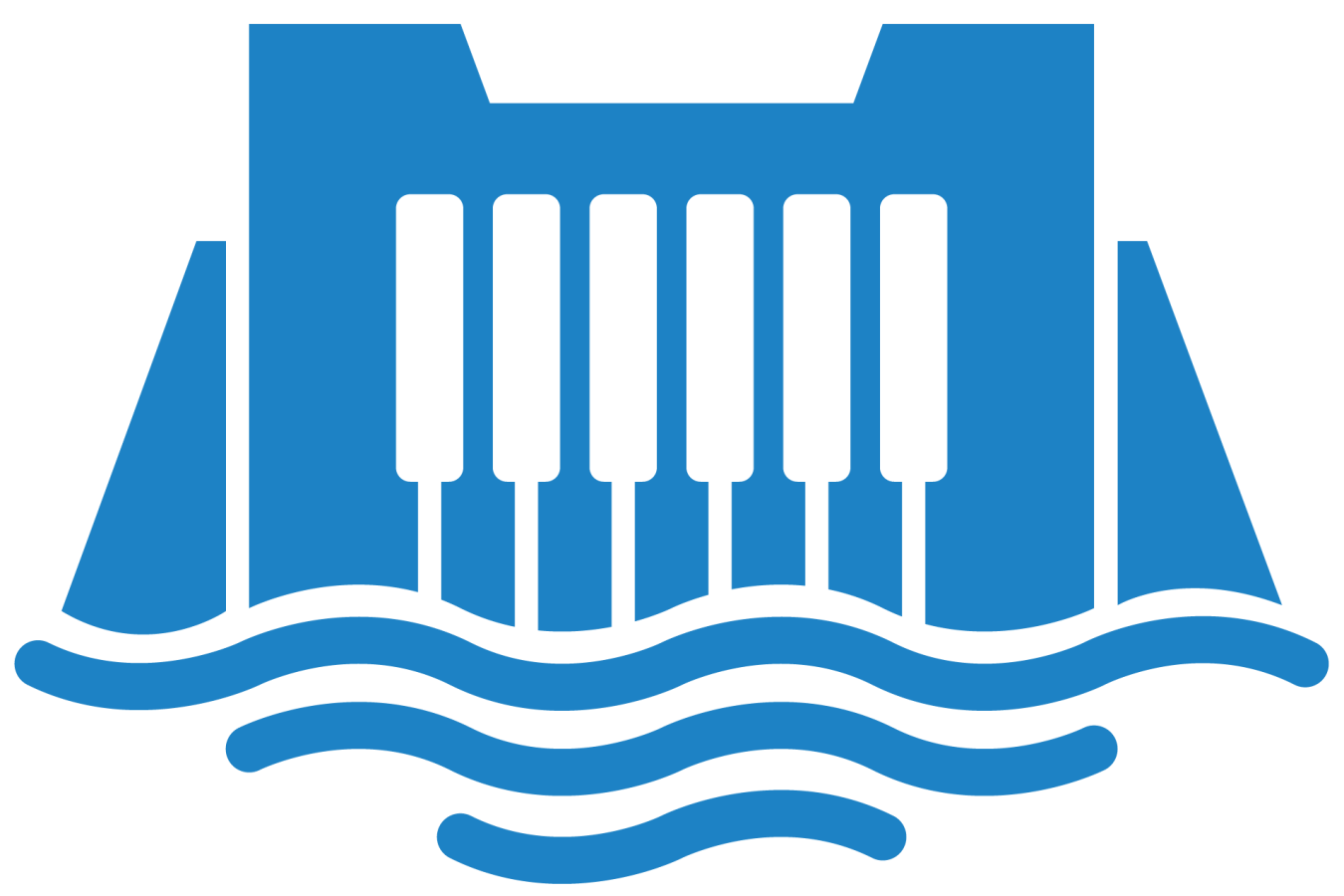New report evaluates and quantifies factors that affect the time, costs, risks, and uncertainties to license or relicense hydropower projects.
Water Power Technologies Office
March 9, 2022Data Access, Analytics, and Workforce Development
Project Name: An Examination of the Hydropower Licensing and Federal Authorization Process
Project Team: National Renewable Energy Laboratory (lead), Oak Ridge National Laboratory, and Kearns & West
Lead Recipient Location: Golden, Colorado

In October 2021, the National Renewable Energy Laboratory and Oak Ridge National Laboratory published a report, An Examination of the Hydropower Licensing and Federal Authorization Process, that examines the factors that have the greatest impact on the hydropower licensing process. Although the report does not propose any specific recommendations to change the current hydropower licensing and authorization process, the findings will aid decision makers in identifying areas for potential reform. It is also intended to help policymakers, regulators, and other key decision makers—including the Federal Energy Regulatory Commission, U.S. Army Corps of Engineers, federal land management agencies, federal and state resource agencies, and Indian tribes—engage in informed discussions with hydropower industry stakeholders such as utilities, developers, consultants, trade associations, and nongovernmental organizations.
The report’s key findings are:
- Greater environmental complexity can lead to longer licensing timelines, especially for relicensing.
- Licensing costs often disproportionately impact new and/or smaller projects.
- Disagreements in negotiations over environmental studies can prolong licensing timelines.
- Incomplete and/or inadequate information can result in longer licensing timelines and disagreements.
- The Integrated Licensing Process has the shortest and least variable timeline of the three licensing processes.
- The hydropower permitting process differs between countries and with other national energy or water infrastructure processes.
- The U.S. hydropower licensing process can improve environmental coexistence with hydroelectric plants.
In the next two decades, more than 600 hydroelectric projects’ licenses will expire. If those projects fail to be relicensed, the United States will lose the amount of clean energy needed to power about 5.5 million homes—equivalent to the entire state of Pennsylvania. Further, the U.S. Department of Energy estimates that new and modernized hydropower projects could grow from 101 to nearly 150 gigawatts of hydroelectricity and storage capacity by 2050. These new findings about the hydropower licensing and relicensing process can help speed progress toward a clean energy future.
Data Access, Analytics, and Workforce Development Projects
-
 The National Renewable Energy Laboratory and several educational nonprofits develop new hydropower curricula and teacher training to help cultivate the next generation of the hydropower workforce.
The National Renewable Energy Laboratory and several educational nonprofits develop new hydropower curricula and teacher training to help cultivate the next generation of the hydropower workforce. -
 HydroSource, an online platform developed by ORNL to house hydropower data, makes significant improvements and implements new datasets, tools, and other resources for hydropower researchers and decision makers.
HydroSource, an online platform developed by ORNL to house hydropower data, makes significant improvements and implements new datasets, tools, and other resources for hydropower researchers and decision makers. -
 New tool provides environmental and energy stakeholders with a systematic and transparent method for identifying the potential environmental impacts of a hydropower project.
New tool provides environmental and energy stakeholders with a systematic and transparent method for identifying the potential environmental impacts of a hydropower project. -
 Newly compiled “data stories” from river basins across the United States highlight the importance of accessible and usable water data to inform decision-making processes.
Newly compiled “data stories” from river basins across the United States highlight the importance of accessible and usable water data to inform decision-making processes.
WPTO's Hydropower e-newsletter features news on R&D and applied science to advance sustainable hydropower and pumped-storage technologies.
The WPTO e-newsletter brings funding opportunities, events, publications, hydropower, and marine energy updates directly to your inbox.


